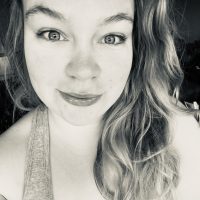I know in these polarized times, many of us will be encountering holidays with estranged families.
Estrangement stemming from gaslighting, minimizing, devaluing, and mocking.
In society, we expose and talk about physical abuse, and we’re beginning to expose and outwardly talk about sexual abuse. Still, people seem to have a hard time believing in the hidden abuse (verbal). We discuss it in romantic relationships and friendships, but we rarely discuss it in the family.
So what happens when the people who are supposed to unconditionally love and support you are ultimately the ones who betray you the most?
You find yourself almost 30 with years and years of therapy and an overbearing maladaptive coping mechanism: full-blown avoidance. Sounds bleak, I know, but if you had met me eight years ago, you’d see that I am a completely different person. I don’t lash out from carrying the anger I had at what my life was like, I don’t inwardly degrade myself as much anymore, and I don’t hide my happiness for life.
And while I’m still healing, still digging up past traumas, and still sometimes feel the need to explain things to people, perhaps I can offer you some insight into my healing process—help you adjust:
1. Frankly, just because you are related to someone by blood does not mean you owe them a relationship—period, end of subject.
Society is so quick to tell you that there is something profoundly reprehensible about you if you don’t have a relationship with your biological family.
This is just unequivocally false and entirely harmful to any child dealing with any form of abuse. You do not owe your parents anything for existing; they chose to birth you; they can take responsibility for their choices.
2. There is nothing wrong with setting boundaries.
This includes saying what you mean and meaning what you say; these are the kindest things you can do for any human being. Therapists always say if someone gets upset with your boundary, it was because they were benefiting from you not having one. This is the recipe for repairing a relationship—if you feel that’s what you truly want (not because you were guilted into it):
“(Insert family member’s name)____, I love you, and I do want to have a relationship with you. However, it hurts me when you belittle my opinions and then minimize or gaslight my hurt. Moving forward, I would like to come up with ways to effectively communicate with each other using healthier boundaries.”
Then list ideas on how you’d like to move forward and ask for input on ideas from them. And truthfully, you’ve got to be prepared for them to come back at you without any intention to abide by your boundary or respect how you’d like to create a new relationship. And you’ve got to be able to accept that.
Disclaimer: Acceptance does not mean you agree. These words are often confused with each other. You can disagree with where a family member stands, but for you to move forward with your healing, you’ll have to accept that’s where he or she is and then hold space (or not) for them to meet you where you are.
3. A blood relation does not equal an unconditional, loving family.
I’ve been so blessed to find an “adopted” family—people who truly love me for who I am and support me with all of my decisions (good or bad), and want to see me happy. You are free to form this family with whomever you choose so long as it’s healthy and conducive to you living a happy and fulfilled life. People who respect your boundaries, care about your goals, and cheer you on through all of life’s difficulties. This could be a friend’s family, a great circle of friends, or a significant other’s family. It could really be anyone so long as they love you for you.
4. Last of all, you’re not crazy.
You’re not brainwashed. You’re a human being deserving of unconditional love and support from yourself and the people you surround yourself with. There is nothing wrong with you cutting off toxic relationships in your life, whether it be with family or friends. You are worthy of happiness, and don’t you ever forget that.
This will most likely be my first holiday season where I don’t do the biological family events (except for my aunt and uncle because they’re awesome). It’s the first year in 10 years I can say that I’m excited for the holidays to be nothing but joy for my adoptive family and me—even in the middle of a pandemic.
It’s also the first time I don’t feel guilty for not wanting to partake in biological family festivities. Healing won’t be an overnight thing, and just because you feel like you can’t have a relationship this year doesn’t mean that you can’t reapproach the idea next year.
Nothing is ever permanent; we’re all always growing and changing.
Don’t ever be afraid to take care of yourself and your heart.
AUTHOR: ASHLEE HUNT
IMAGE: MINIMALISTA/INSTAGRAM

This account does not have permission to comment on Elephant Journal.
Contact support with questions.